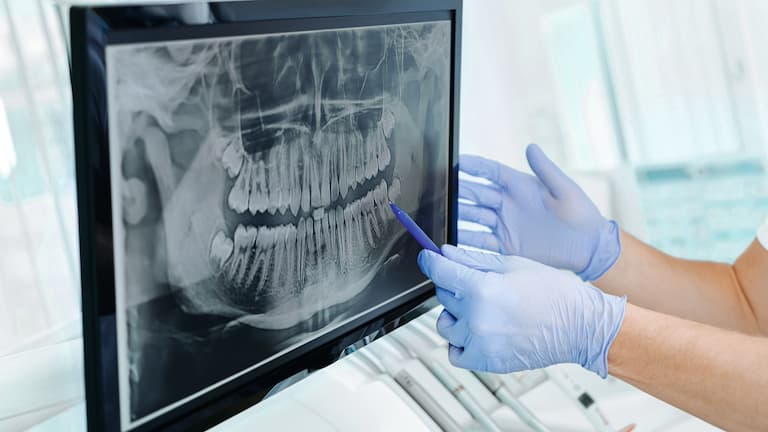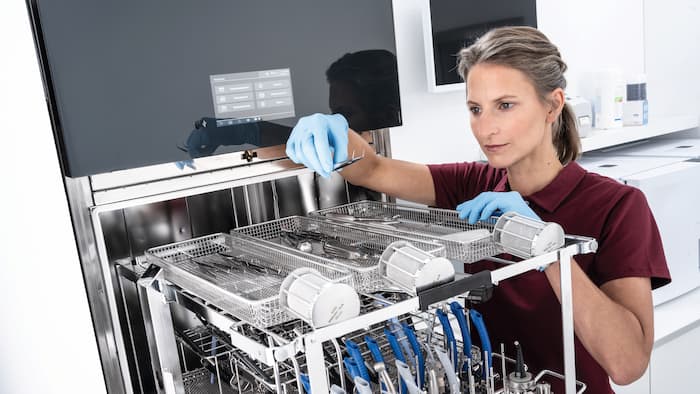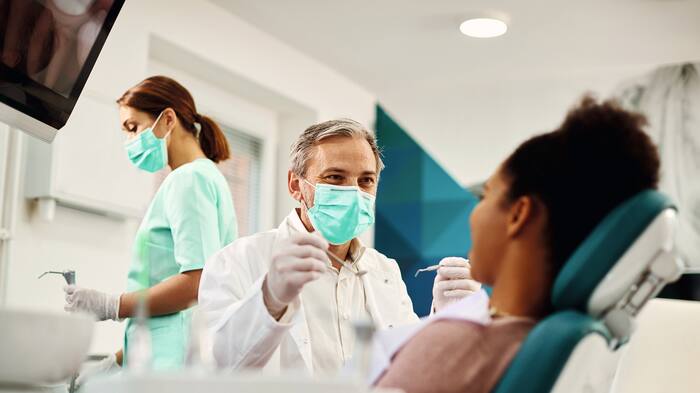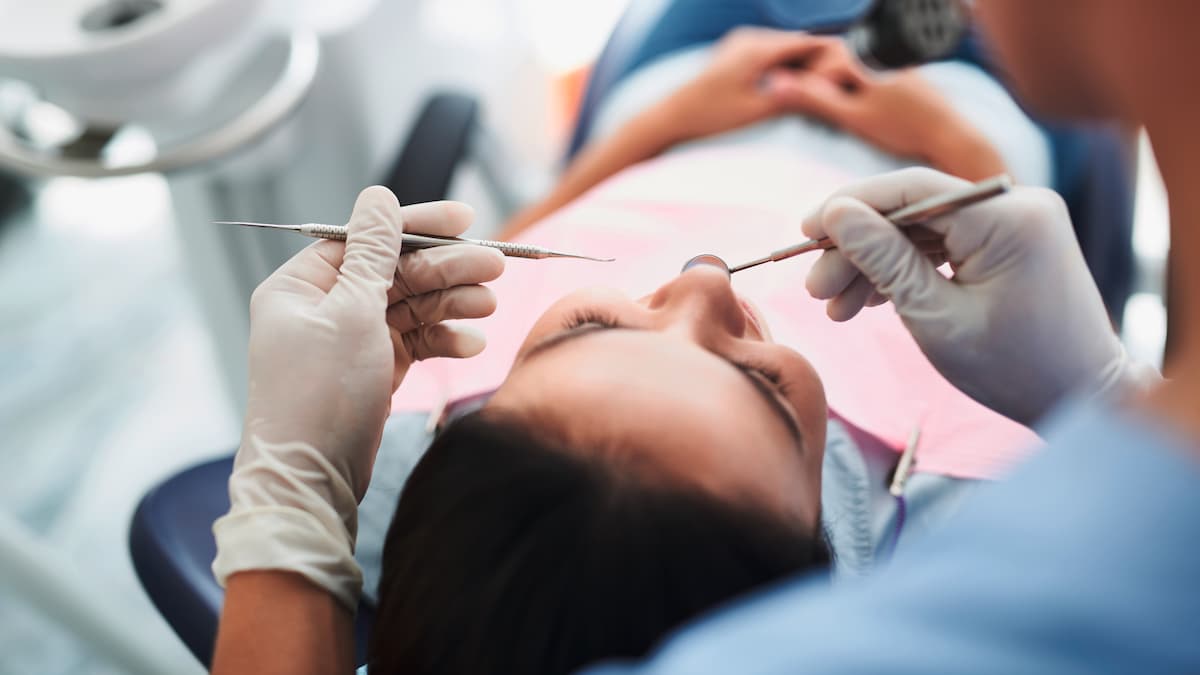
Reprocessing instruments in dental practices – what’s the best approach?
1. Highest levels of hygiene
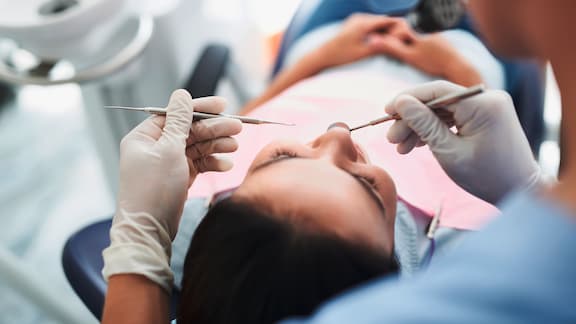
Regardless of whether we are in a small practice or a large dental clinic, relying on professional machines enables to streamline and standardise instrument reprocessing.
The main benefit of a streamlined, standardised process is the elimination of human error in favour of thorough hygiene and consistent results, which are both non-negotiable to dental practices.
Thanks to programmes, accessories and chemicals especially designed for the dental sector, professional machine reprocessing with a thermal disinfector allows to achieve the highest levels of hygiene, which are not consistently reached through other methods. By eliminating manual handling of instruments, dental practices can also ensure infection control for the health and safety of staff and patients.
Consistent cleaning results and standardised workflows further contribute to compliance with regulations. This means that, by employing professional washer disinfectors, dental practices can ensure successful outcomes in contexts where authorities carry out quality and hygiene inspections.
2. Efficiency and cost saving
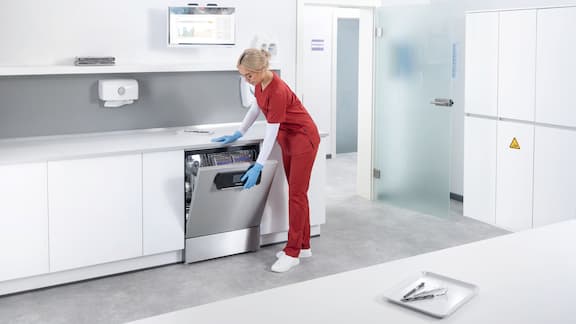
Automated instrument reprocessing boosts efficiency. Manual cleaning and disinfecting require meticulous attention and time, especially in practices where instrument sets are reused multiple times a day. Entrusting these tasks to professional machines enables dental assistants to focus on patients, employing their time productively and delivering value for the whole practice.
Machines such as Miele Professional’s thermal disinfectors, which are especially designed for dental instruments, offer specific programmes and flexible combinations of baskets and inserts: This enables reprocessing high volumes and different types of instruments in a single cycle without compromising on quality results. For example, when dedicated inserts are used, our undercounter thermal disinfectors wash the basic instruments sets1 used to treat 160 patients in only four cycles. That means a selection of 480 instruments in total.
In our endeavour to support all dental clinics regardless of the number of treatments they perform daily, at Miele Professional we have developed thermal disinfectors of a wide range of sizes, spanning from small benchtop machines through to undercounter and large-chamber washers.
3. Traceability

Thanks to digital solutions, professional machines offer thorough process documentation, so staff can rely on full transparency and traceability of reprocessing activities. Innovative solutions such as Miele MOVE Connect, Miele Professional’s data visualisation platform, also provide visibility of energy and water consumption of selected machine types, offering full awareness of utility usage. Another advantage of digital solutions such as Miele MOVE Connect is the ability to check when cycles end, remotely and from any device, further optimising processes and reducing time waste.
4. Sustainability
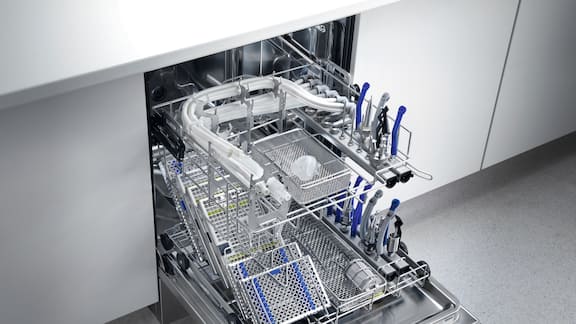
Automated reprocessing solutions, including thermal disinfectors, have been proven to reduce the environmental footprint of dental practices. Optimised programmes offer control over water usage, temperature, and chemical dosing, avoiding waste while delivering maximum cleaning and disinfection results. Miele Professional’s undercounter thermal disinfectors, for example, use steam condensing that contributes to up to 40% less water usage compared to machines without this technology. Made of 90% recycled steel and tested to operate 15,000 hours, the washer disinfectors by Miele Professional are made to last. This reduces lifetime costs and provides reassurance to dental practices that their equipment will support them in the years to come.
360PRO solutions for your dental practice
With 360PRO, Miele Professional offers an innovative, comprehensive system for your dental practice that only starts with automatic instrument reprocessing. Explore our 360PRO Dental website now!
- 1.Spiegel, Sonde und Pinzette
- 2.https://dentistry.co.uk/2021/02/02/decon-pete-manual-automatic-cleaning/
- 3.https://www.england.nhs.uk/wp-content/uploads/2021/05/HTM_01-05_2013.pdf
- 4.https://www.dental-nursing.co.uk/features/decontamination-of-dental-instruments
- 5.https://www.zippia.com/answers/what-is-a-typical-day-for-a-dentist/
- 6.https://dentistry.co.uk/2015/10/13/a-day-in-the-life-associate-dentist/
